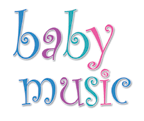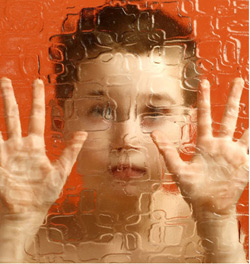
 |
A Sound Start in Life
"We have professionally selected a range of the best music now available for children, while developing our own award-winning
Unique Baby Music Formula for soothing and enchanting mother and baby."
Artistic Director
 |  |
 |  |
"The music is beautiful! The richness of it is wonderfully soothing for my baby."
iParenting Media Awards
"One of the most relaxing CDs we have ever had the pleasure of experiencing."
Practical Pre-School Gold
 We work withArts Global"Helping Young Musicians"artsglobal.org Shop Here!
We work withArts Global"Helping Young Musicians"artsglobal.org Shop Here!PayPal plus all major
Credit and Debit cards
—Secured by SECPay— Postage of £3.50 added
at checkout to an
order of any size
Information about the benefits of good music heard throughout pregnancy, early life and into adulthood. Pointers to fine participatory music programmes for young people. | |
MUSIC THERAPY FOR CHILDREN WITH AUTISTIC SPECTRUM DISORDER
 | Music is used as therapy for individuals with a variety of difficulties, including Autism Spectrum Disorder. ASD is more common than people may realise, affecting 1 in 100 people in the UK to varying degrees. Music therapy is particularly relevant for people with ASD, as it concentrates on the use of music as a means of communication, self-expression and interaction. Click here for a PDF version of this article. |
“Autism affects the way a person communicates and how they experience the world around them. Autism is described as a “spectrum condition”. This means that while people with autism, including Asperger’s Syndrome, share certain characteristics, they will be highly individual in their needs and preferences. Some people with autism are able to live relatively independent lives but others may face additional challenges, including learning disabilities, which affect them so profoundly that they need support in many areas.” (ambitiousaboutautism.org.uk) People diagnosed with autism will have varying issues, in different degrees of severity, but in general the core symptoms are often related to communication difficulties, an inability to establish friendships and to interpret non-verbal communication, and a lack of empathy. Many children diagnosed on the autistic spectrum experience delayed speech, or never learn to speak at all. A common characteristic is also to take on an unusual fascination or preoccupation with an item or topic. All children thrive on routine, but it is typical for children with autism to require this ‘sameness’ to a higher extent than others, and to need do things in the same way each time. (webmd.com) Children tend to be diagnosed with Autistic Spectrum Disorder within the first three years of their life, usually triggered by observations from their parents that they may not be developing in the same way as their peers in terms of language and social interactions. With intensive treatment early in the diagnosis, it is possible for children to learn how to improve their ability to communicate and to manage their condition. As music is such an expressive art, people of all ages and abilities finds it therapeutic, either to listen to or to make music, whether alone or in a group. Music is fun, relaxing and stimulating, but it goes deeper than that—music has a profound impact on our brains and bodies: “Music is a core function to our brain… Our bodies entrain to rhythm… We have physiological responses to music… Children respond readily to music… Music taps into our emotions… Music helps improve our attention skills… Music shares neural circuits with speech… Music enhances learning… Music taps into our memories… Music is a social experience… Music is predicatable, structured and organised… Music is non-invasive, safe and motivating.”(positscience.com) The article from which these statements are taken gives examples for each, and suggests further reading. Considering the difficulties faced by many people with ASD, almost all of these qualities of music make it a highly relevant form of therapy for this condition. Music can be used to gently explore issues with communication, socialising and routine, without pushing too far or making the patient feel uncomfortable. “Everyone knows that music is a universal language and for children on the autism spectrum who have barriers to communication and social interaction, music is especially well-suited to their needs. Because it captures and helps maintain attention, music serves as a great motivator and helps reinforce desired responses, assisting a child to reduce negative and/or self-stimulatory responses and increase participation in socially accepted ways.”(autismkey.com) The way that music is used in therapy depends on the patient and their needs and abilities. As ASD is such a wide-ranging disorder, and patients can exhibit such varying degrees of severity, a qualified music therapist will take this into account and design a personalised therapy program which is appropriate for that individual. “There are five main types of music therapy. First is receptive music therapy, in which the client listens to live or recorded music. Second is compositional music therapy, in which the client creates music. Improvisational music therapy is when the therapist guides the client to spontaneously create music. Recreative music therapy is when the client learns to play an instrument, and activity music therapy is when the therapist sets up musical games.”(Music and the Mind) There is much research on how music can benefit children with autism, and there is significant evidence supporting its use as therapy. The results will vary, as will the time taken before any results at all are shown. It is commonly advised that children diagnosed with ASD begin some form of therapy, be it musical or another kind, as early, and as intensively, as possible to maximise the chances of improvements. “Every course of music therapy is different, and there are no set results; each individual is different. However, some of the ways that people on the autistic spectrum have been found to benefit from music include: Communication: development of meaningful gestures, sounds and language; diversion from repetitive behaviour; increasing tolerance of sounds. Social Development: motivation to interact; tolerance of change and unpredictability; enhancing flexibility and responsiveness; providing meaningful shared experiences. Emotional Development: improving sense of self and self esteem; developing expressive abilities; sharing of emotional experience. Cognitive Development: developing awareness, concentration, memory, creativity; increasing conscious control of actions and handling of objects. Early Intervention: Enhancing development at an early stage of young children on autistic spectrum, or who have difficulties associated with ASD; supporting families experiencing isolation, stress or frustration. Specific benefits with adults with ASD: Exploration of emotions and feelings; richer life experience and emotional stability.” (Nordoff-Robbins) Music therapists work with children and adults of all ages and abilities, and aim to help people experiencing learning disabilities, mental health problems, communication problems, addiction problems, challenging behaviour, eating disorders, emotional and behavioural difficulties and stress. They can work in a variety of settings including hospitals, special schools, day centres, hospices, the community and within the prison service. Some music therapists may specialise in working with children, or with people with a particular difficulty, such as ASD, but many will be used to working with a whole spectrum of people. To become a music therapist in the UK, a high level of musicianship is required, along with postgraduate training leading to a Masters degree in Music Therapy. “Music therapy requires a high level of musical skill and wide-ranging psychosocial understanding of how music and music-making impact on a person’s experience of health and well-being, individually and communally. You will learn the best ways to engage people musically, whose life experience, illness or disability or social exclusion make it hard for them to participate in life. You will become skilled in using musical-personal skills to engage clients individually and in community contexts, opening up areas of self-experience and of interaction with others”(Nordoff-Robbins) If you have a child who has been diagnosed with a condition on the autism spectrum, they may be offered music therapy as part of their treatment plan. This might take place in your home or at a medical centre, depending on what is available in your area. If the option for music therapy is not available on the NHS, you may be able to engage a private therapist, for either group or individual sessions. The British Association of Music Therapists is a good place to start if you are considering doing this. In some cases, funding might be available, depending on your circumstances and need. If your child has been diagonised with Autistic Spectrum Disorder they will almost certainly benefit from having music therapy sessions with a qualified professional. If this is not possible, or if you’d like to do additional musical activities at home, there are many ways you can introduce music making and listening to your child and make it a very valuable part of their life, whether they have disabilities or not. Several of the websites referenced in the Further Reading section provide ideas for specific activities you can try with your children at home, along with some of the other articles in Music in Our Lives, for example Music at Bedtime and Choosing Music for Children. Try using music as a ‘call to attention’ or as a transition to signify a particular activity taking place. Make up little games using percussion instruments (even homemade ones) and practice turn-taking, mimicking, understanding patterns, recognising loud/quiet, high/low, slow/fast, and much more. Music is such a versatile art form that when used as a learning tool or form of therapy it can have a positive impact on many areas of a person’s development. Websites The web home of Stephen Shore, author of Beyond the Wall: Personal Experiences with Autism and Asperger Syndrome. The website serves to build greater awareness of the autism spectrum and in particular, Asperger Syndrome. It joins other websites with this same focus and will work together with them toward strengthening our community of people on the autism spectrum. The website of music therapist Theresa Griffin. British Association for Music Therapy The British Association for Music Therapy (BAMT) is the professional body for music therapists and a source of information, support and involvement for the general public. The website of the mental health charity, MIND, providing information and support for anyone with a mental health problem. Includes information about various arts therapies. A UK charity promoting the development and use of music therapy, as a means to relieve those living in conditions of need, hardship or distress, suffering from mental or physical disability and the effects of poverty or sickness. This superb site contains articles on many subjects, not exclusively music and autism, and is well worth a visit from anyone wanting to learn about how listening and playing music can benefit our brains. Music for Autism is enhancing quality of life and raising public awareness through autism-friendly, interactive concerts developed specifically for individuals with autism and their families. The accompanying website for the book of the same name by musician Denie Riggs, written after decades of working with children with special needs. Her non-traditional approach of teaching music works with children with autism with astounding results. The leading UK charity for people with autism and Asperger syndrome and their families A national music charity dedicated to transforming the lives of vulnerable children and adults across the UK, using music therapy and other music services to help a range of people with a range of challenges such as autism, dementia, mental health problems, stroke, brain injury, depression and life-threatening or terminal illnesses, such as cancer. A UK charity exclusively dedicated to research into interventions in autism (including music therapy). The charity carries out high quality, independent research into new and existing health, education, social and other interventions. Online Articles Autism and ADHD: Signs, Treatments and Therapies A comprehensive guide to ASD and ADHD A blog site with useful tips about online safety for prop;e with ASD Autism Spectrum Disorders: Music Therapy and Autism A scientific piece describing how music can help people with autism overcome specific challenges. This article contains a lot of technical language, but an excellent list of references for those interested in further research on this subject. British Association for Music Therapy: Autism Case Study A case study detailing how music therapy helped a boy of 10 with severe autism learn to communicate. Feeding the Hungry Brain with Music A helpful piece about one child in particular with severe communication difficulties, who has benefitted from three kinds of music therapy: Music Therapy, Listening Therapy and Integrated Listening Systems (iLs). Music and autism: Is there a special relationship between autism and music? This is a short article from the Wellcome Trust, supporting research and improvements in human and animal health. An excellent page which forms part of a music therapy website, listing numerous high quality academic articles and studies researching music and autism, with links and pdfs to print. Highly recommended! Music and the Mind: Can Music Benefit Those with Autism? An essay by Elizabeth Aguila summarising how music therapy is used for patients with autism, and the results of several studies, but emphasising the fact that more research is needed in this area. Music for the Child on the Autism Spectrum An article from the website Autism Today, in the form of an excerpt from the biography of autism expert Stephen Shore. Music for the Child with Autism Personal experiences of how music can be used as a therapy from autism expert Stephen Shore. Music for Music Teachers: Autism and Music An interesting piece by a piano teacher on how she adapts her teaching style and overcomes problems teaching a pupil with autism. Music Therapy Benefits Individuals with Autism A page from the website Autism Key about how parents can help their autistic child using music at home, without necessarily using a trained music therapist. This article summarises how music therapy can help, and how to go about finding a qualified therapist. Music Therapy Improves Behavior in Children With Autism A summary of the findings of a study which suggested that weekly music therapy sessions lasting just an hour can have a positive effect on behaviour in children with autism. Music Therapy for Individuals With Autism A Huffington Post article about how and why music is such effective therapy for people with autism, with case studies and examples. Periodicals and Scientific Studies Journal of Aesthetic Education: Vol. 35, No. 2, Summer, 2001 Research on Music and Autism: Implications for Music Educators Applications of Research in Music Education, v18 n1 p15-20 Fall-Win 1999 Inclusive Music Teaching Strategies for Elementary-Age Children with Developmental Dyslexia Music Educators Journal, v99 n1 p54-59 Sep 2012 Music Interventions for Children with Autism: Narrative Review of the Literature Journal of Autism and Developmental Disorders, v41 n11 p1507-1514 Nov 2011 Journal of Child Psychology and Psychiatry, Volume 41, Issue 8, pages 1057–1065, November 2000 Music in intervention for children and adolescents with autism: a meta-analysis. J Music Ther. 2004 Summer;41(2):90-106. Marianna Boso, Enzo Emanuele, Vera Minazzi, Marta Abbamonte, and Pierluigi Politi. The Journal of Alternative and Complementary Medicine. September 2007, 13(7): 709-712. doi:10.1089/acm.2006.6334. Music activities as therapy for children with autism and other pervasive developmental disorders. Nelson, David L.; Anderson, Virginia G.; Gonzales, Anna D. Journal of Music Therapy, Vol 21(3), 1984, 100-116. Autism July 2009 vol. 13 no. 4 389-409 |






